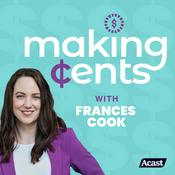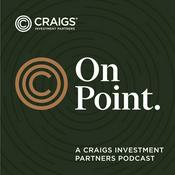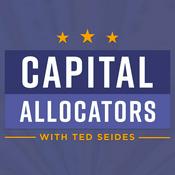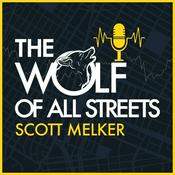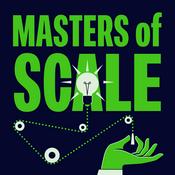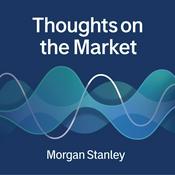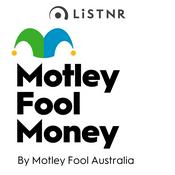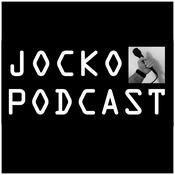778 episodes
- Kia ora.
Welcome to Monday’s Economy Watch where we follow the economic events and trends that affect Aotearoa/New Zealand.
I'm David Chaston and this is the international edition from Interest.co.nz.
Today we lead with news the modest US inflation rate reported for January is fueling a disconnect and scepticism in US households.
But first, this is a week where we will get the next RBNZ OCR review on Wednesday, important because it is Governor Brennan's first. And she will get her first inkling of January inflation impulses on Tuesday, and may have the January REINZ data later today. And she will likely know how the bank's consumer and business surveys are tracking, especially on inflation expectations.
In Australia, the key data will come on Thursday with their January labour force updates. And the RBA will release the minutes of it February 4 meeting on Tuesday, always a potential market-moving event.
The US Fed will also release its minutes this week. And we will get the advance estimate of Q4-2025 US GDP, as well as the Fed's [referred inflation gauge, the PCE. Canada will chime in with its own key releases.
In China, markets will be closed for the week-long Lunar New Year holiday from February 16 to 23, although January foreign direct investment data is still expected to be released. Elsewhere, trade figures are due from Singapore, Malaysia, and New Zealand, while Malaysia will also publish inflation data.
Over the weekend, China reported that that price deflation in their housing market picked up in January for a third straight month at a faster pace, overall down -3.1% from a year ago. In January, the year-on-year sales price of existing homes in first-tier cities fell by -7.6%. Specifically, prices in Beijing, Shanghai, Guangzhou, and Shenzhen falling by -8.7%, -6.8%, -8.3%, and 6.5% respectively. In second- and third-tier cities, the year-on-year sales prices of existing homes fell by -6.2% and -6.1%. Prices for new-built houses fell too, but only by -2.1%.
Staying in China, and as expected, the normal January surge in new yuan lending by banks occurred again this year, but by less than expected and by a -8.2% lower level than for 2025, -4.3% lower than for January 2024. And it was -5.8% lower than what was expected. It is a soft result and is typically followed by a sharply lower level of lending in February during the Spring Festival/CNY period. 2026 is off to a languid start for them.
Meanwhile, China's export economy is still functioning at full speed. Their current account surplus widened to an unprecedented US$242 bln in Q4-2025, sharply higher than the US$164 bln recorded a year earlier.
India also released bank loan data overnight, and their firms are borrowing up big. In fact, it was up +14.6% in January from a year ago, the strongest surge in a year.
Malaysia reported that its economic activity rose +6.3% in Q4 2025 from a year ago, revised up from an initial 5.7% and accelerating from 5.4% growth in Q3. This was their sharpest expansion since Q4-2022, with broad gains in agriculture, driven by oil palm output (+16, manufacturing, and services.
On Saturday in the US CPI inflation came in at 2.4% for the year to January, slightly below the expected 2.5%. Core inflation came in at the expected 2.5%. This result was all due to lower petrol prices and falling used car prices. However, food was up +2.9%, and rents were up +3.0%. Electricity prices were up +6.3% (thank you, AI) and home gas was up +9.8%. It will be hard for households to feel inflation is under control.
And key will be how the US Fed will interpret this data when setting their policy rates at their next meeting on March 19, 20206 (NZT). Markets currently expect a hold, and at least until the middle of the year.
And one reason food prices seem higher there than the official data is that US beef cattle herd is now at its lowest in 75 years. This helps explain why US imports are soaring, and prices are high & rising.
And don't forget, it is a long holiday weekend in the US for Washington's Birthday/President's Day. US-based activity will be low tomorrow and that will show up in our financial markets.
The UST 10yr yield is still just under 4.06%, little-changed from Saturday but it is down -15 bps from this time last week.
The price of gold will start today up +US$21 from Saturday at US$5041/oz. Silver is down -50 USc at US$77.50/oz today.
American oil prices are little-changed at just under US$63/bbl, while the international Brent price is still under US$68/bbl.
The Kiwi dollar is little-changed against the USD from Saturday, now just on 60.4 USc and down -10 bps. Against the Aussie we are unchanged at 85.4 AUc. We are down marginally again against the yen. Against the euro we are unchanged at 50.9 euro cents. That all means our TWI-5 starts today little-changed, now at 63.8 and down -10 bps from Saturday.
The bitcoin price starts today at US$68,565 and down -0.8% from this time Saturday. Volatility over the past 24 hours has been modeST at just under +/- 1.5%.
You can get more news affecting the economy in New Zealand from interest.co.nz.
Kia ora. I'm David Chaston and we’ll do this again tomorrow. - Kia ora.
Welcome to Friday’s Economy Watch where we follow the economic events and trends that affect Aotearoa/New Zealand.
I'm David Chaston and this is the international edition from Interest.co.nz.
Today we lead with news global financial markets are showing nerves ahead of tomorrow's US CPI data, not only because there is upside risk that will restrain the US Fed from, rate cuts, but also gun-shy after getting non-farm payrolls reports they basically didn't believe. Sanitised US data is a risk no-one wants (other than the White House.)
First in the US, there were 248,000 initial jobless claims last week, a small decrease but the one explained by seasonal factors. There are now 2.215 mln people on these benefits, more than the 2.19 mln in the same week a year ago.
And American existing home sales came in sharply lower in January that the good December level. They ran at a -4.4% lower rate than in January 2025, and even lower than the unusually low January 2024 level. They fell everywhere and was the largest fall in four years, although prices rose marginally from a year ago.
The New York Fed released a detailed review of "who pays" the Trump tariff taxes, and surprise, surprise, they found it is almost exclusively (90%) Americans who pay. Who knew? They also found that after these tariffs, China's share of US imports is basically unchanged. Some people are slow learners - tariff taxes are a tax on yourself. But you have to take stage one economics to learn this stuff.
In India, they released CPI inflation data overnight and it came in at 2.75%, their highest since May. And we should also probably note that protests in India are growing against their recently-agreed free-trade deal with the US.
In China, their Spring Festival / Chinese New Year formally starts on Tuesday, and a lot depends on the consumer spending patterns during this two week annual break. Forward bookings for travel indicate a record level of travel, a sharp jump in international travel, and a preference for independent, non-package holidays. Thailand, Russia, Turkey and the Philippines are getting outsized bookings this year.
Separately, China has rolled back its steep tariff penalty on EU dairy products.
In Australia. consumer inflation expectations rose in February to 5.0%. This follows a seven-month period of below five-per cent expectations. The increase in February is present across a number of inflation expectations measures.
And staying in Australia, chances are rising that extended drought conditions related to the return of an El Niño weather pattern that may come later in 2026. It will be hotter there too. If that occurs, there will be spillover implications for New Zealand, particularly for the rural sector.
Global container freight rates were little-changed last week (-1%), to be -38% lower than year-ago levels. Once again, the key change were weaker outbound China rates. Although shifting in between, bulk cargo rates are essentially unchanged from a week ago, but they are +150% higher than year-ago levels. (But that base was unusually low.)
The UST 10yr yield is now just over 4.11%, and down -6 bps from yesterday in a hard shift to 'safety'.
The price of gold will start today down -US$122 from yesterday at US$4953/oz. Silver is down a very sharp -US$8 at US$76/oz and even more volatility.
American oil prices are down -US$2 at just over US$63/bbl, while the international Brent price is now just under US$68/bbl.
The Kiwi dollar is down a minor -10 bps against the USD from yesterday, now just over 60.5 USc. Against the Aussie we are up +20 bps at 85.2 AUc. We are down again against the yen. But against the euro we are unchanged at 51 euro cents. That all means our TWI-5 starts today also little-changed, still at 63.9.
The bitcoin price starts today at US$66,288 and up +0.5% from this time yesterday. Volatility over the past 24 hours has been modest at just on +/- 1.7%.
You can get more news affecting the economy in New Zealand from interest.co.nz.
Kia ora. I'm David Chaston and we’ll do this again on Monday. - Kia ora.
Welcome to Thursday’s Economy Watch where we follow the economic events and trends that affect Aotearoa/New Zealand.
I'm David Chaston and this is the international edition from Interest.co.nz.
Today we lead with news of what seems to be an outlier jobs report that has financial markets sceptical.
US non-farm payrolls were claimed to have risen +130,000 in January in delayed data released today, far above the downwardly revised +48,000 level for December and more than double analysts' collective estimates. All the gains seem to be in their healthcare sector. If it stands, it undermines the case for Fed rate cuts.
Market reactions have not been supportive, with bond yields rising, rate curves fattening, the equity markets falling, and the USD falling.
The detail of this jobs report remains 'interesting' all the same. Raw (not seasonally adjusted) data shows payrolls actually fell -2.65 mln in January from December, down -2.85 mln from November. And nested within this data are revisions for calendar 2025 now showing employment growth for 2025 revised down to +181,000 from +584,000 previously reported, implying average monthly job gains of just +15,000.
These revisions bring the official data back looking like the private ADP data - except for the January headline result. Markets expect this to be revised sharply down in coming months.
US mortgage applications fell again last week, the third consecutive dip, although not as sharp as the prior two.
There was another US Treasury bond auction overnight, this one for their ten year Note. It was well supported. The median yield came in at 4.11%, down from the 4.13% at the prior equivalent event a month ago.
Meanwhile, the US budget deficit keeps getting worse. It will grow in fiscal 2026 to -US$1.85 tln, the Congressional Budget Office said overnight. Current policy settings are worsening the country's fiscal picture amid low economic growth, particularly the enormous tax-cuts for the rich. They say the "One Big Beautiful Bill" tax cuts will will add $4.7 tln to US deficits.
Across the Pacific, there is still no inflation in China, and it has turned toward deflation faster than expected. Their annual inflation rate eased to +0.2% in January from an already very low 0.8% in the previous month. This is its lowest level since October and below market estimates of 0.4%. Food prices fell for the first time in three months (-0.7% vs 1.1% in December) while non-food inflation slowed sharply too (0.4% vs 0.8%). Meanwhile, Chinese producer price deflation eased to -1.4%.
China also released January car sales data, coming in at 2.35 mln for the month. However, that was -3.3% lower than for January 2025 and +-3.8% lower than the same month in 2024. Notably soft were NEV sales in January. Perhaps we are seeing signs of maturing (or exhaustion?) in this very dynamic market. It's is hugely important to China's industrial base, selling more than 34 mln units in 2025.
In Australia, the number of new owner-occupier new home loan commitments rose +7.5 in the December 2025 quarter compared with a year ago. On a value basis, that rose +18.9%. For housing investor loans for the same periods, the number of new loans rose +24%, and their value rose +32%.
The UST 10yr yield is now just under 4.17%, and up +2 bps from yesterday.
The price of gold will start today up +US$58 from yesterday at US$5075/oz. Silver is up +US$3.50 at US$84/oz and extending its new volatility.
American oil prices are up +US$1 at just on US$65/bbl, while the international Brent price is now just under US$70/bbl.
The Kiwi dollar is up a minor +10 bps against the USD from yesterday, still just under 60.6 USc. Against the Aussie we are down -50 bps at 85 AUc. We are also down against the yen. But against the euro we are up +20 bps at 51 euro cents. That all means our TWI-5 starts today little-changed, still at about 63.9.
The bitcoin price starts today at US$65,965 and down -5.1% from this time yesterday. Volatility over the past 24 hours has been moderate at just on +/- 2.8%.
You can get more news affecting the economy in New Zealand from interest.co.nz.
Kia ora. I'm David Chaston and we’ll do this again tomorrow. - Kia ora.
Welcome to Wednesday’s Economy Watch where we follow the economic events and trends that affect Aotearoa/New Zealand.
I'm David Chaston and this is the international edition from Interest.co.nz.
Today we lead with news financial markets are taking more notice of the lackluster US economic data today, with Wall Street equity markets hesitating, bond yields in a defensive twist, and the USD staying weaker.
But first, the overnight dairy Pulse auction not only confirmed the prior week's sharp rises, it added to them. WMP was up a marginal +0.4% from a week ago to be up +14% from the start of 2026. Butter was up +6.8% from last week, up +18% year-to-date. And the SMP price was up +1.7% from last week, also up +14% so far this year. Everyone in the industry will welcome this confirmation of the recent rising trend, even if some of it is just USD weakness.
Not so positive was the US retail sales report for December, which showed zero growth from November, to remain +2.3% higher than a year ago. Given CPI inflation is +2.7%, there is clear stagflation involved here.
Meanwhile the weekly ADP employment report only showed private payrolls gaining +6,500 nationally, well within the margin of error. But at least it was better than the prior week's no-change.
The January NFIB optimism index was also little-changed and still below the benchmark 100 level.
US household debt as at the end of 2025 was recorded at US$18.8 tln, a +4.2% rise from the end of 2024. Non-housing debt rose only +2.6% in the same period, so Americans are taking on more housing debt at a faster pace. The same report shows delinquency rates on all loans rose to 4.8% of outstanding household debt, the highest level since 2017, driven by higher defaults among low-income and young borrowers.
The overall soft US data probably helps make the case for another Fed rate cut at their next meeting on March 19, 2026 (NZT) but there is a lot to be revealed before then.
In Australia, consumer sentiment slipped in February, and not insignificantly. Recall, the RBA has recently pushed through a rate rise. Analysts say the fall is a muted response compared to previous rate hikes. Over 80% of those surveyed expect interest rates to rise further in the next 12 months. Homebuyer sentiment has sunk as price expectations hit new 15 year high.
Meanwhile, the NAB business sentiment survey results inched up in January, although revenues softened. That was offset by costs easing a bit faster.
The UST 10yr yield is now just under 4.15%, and down a sharpish -5 bps from yesterday.
The price of gold will start today down -US$55 from yesterday at US$5018/oz. Silver is down a sharp -US$3 at US$80.50/oz and continuing its extreme volatility.
American oil prices are down -50 USc at just on US$64/bbl, while the international Brent price is now just under US$69/bbl.
The Kiwi dollar is little-changed against the USD from yesterday, still just under 60.5 USc. Against the Aussie we are up +20 bps at 85.5 AUc. Against the euro we are holding at 50.8 euro cents. That all means our TWI-5 starts today unchanged at 63.9.
The bitcoin price starts today at US$69,517 and down -0.7% from this time yesterday. Volatility over the past 24 hours has been moderate at just on +/- 2.3%.
You can get more news affecting the economy in New Zealand from interest.co.nz.
Kia ora. I'm David Chaston and we’ll do this again tomorrow. - Kia ora.
Welcome to Tuesday’s Economy Watch where we follow the economic events and trends that affect Aotearoa/New Zealand.
I'm David Chaston and this is the international edition from Interest.co.nz.
Today we lead with news Taiwan's export prowess shows no signs of flagging.
But first, US inflation expectations fell to 3.1% in January, the lowest in six months, compared to 3.4% in December. Consumers expect a slowdown in prices for petrol, and a slight easing in rent rises. But they still expect food prices to rise 5.7% over the next year.
The release of US labour market data, and their CPI update later in the week is where the focus is currently. And the US dollar is weak again, back near its post-pandemic low.
In China, their economy is gearing up for the Year of the Horse. China's Spring Festival holiday starts a week from today on February 17 and runs to March 3, 2026.
Taiwanese exports in January were spectacular yet again. They were up +70% year-on-year to an all-time high of US$66 bln in the month, following stunning +43% growth in the previous month. Analysts were expecting a +50% rise. It is a virtuous result with every category of their export trade rising. Exports to the US jumped +150%, and are now accounting for one third of their third export trade - about the same as it is toi China.
Malaysia's industrial production rose +4.8% in December from a year ago, the sixth straight month it has expanded by more than +4%.
In Australia, household spending fell -0.4% in December on a seasonally adjusted basis. The only category that rose notably was alcohol sales. This follows rises of +1.0% in November and +1.4% in October. Household spending over the year remains high, up +5.0% in the year to December 2025.
The UST 10yr yield is now just over 4.20%, and little-net change from yesterday.
The price of gold will start today up +US$107 from yesterday at US$5073/oz. Silver is up a sharp +US$5.50 at US$83.50/oz after recovering from a 2026 low.
American oil prices are up +US$1 at just on US$64.50/bbl, while the international Brent price is now just under US$69/bbl.
The Kiwi dollar is up +30 bps against the USD from yesterday, now just under 60.5 USc. Against the Aussie we are down -½c at 85.3 AUc. Against the euro we are down -10 bps at just on 50.8 euro cents. That all means our TWI-5 starts today just over 63.9, and up +10 bps from yesterday.
The bitcoin price starts today at US$70,013 and down -1.0% from this time yesterday. Volatility over the past 24 hours has been moderate at just on +/- 2.5%.
You can get more news affecting the economy in New Zealand from interest.co.nz.
Kia ora. I'm David Chaston and we’ll do this again tomorrow.
More Business podcasts
Trending Business podcasts
About Economy Watch
We follow the economic events and trends that affect New Zealand.
Podcast websiteListen to Economy Watch, The Property Academy Podcast and many other podcasts from around the world with the radio.net app
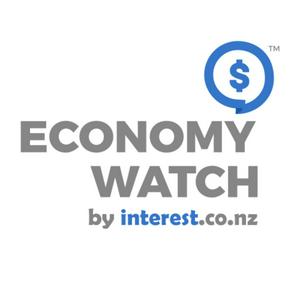
Get the free radio.net app
- Stations and podcasts to bookmark
- Stream via Wi-Fi or Bluetooth
- Supports Carplay & Android Auto
- Many other app features
Get the free radio.net app
- Stations and podcasts to bookmark
- Stream via Wi-Fi or Bluetooth
- Supports Carplay & Android Auto
- Many other app features


Economy Watch
Scan code,
download the app,
start listening.
download the app,
start listening.



